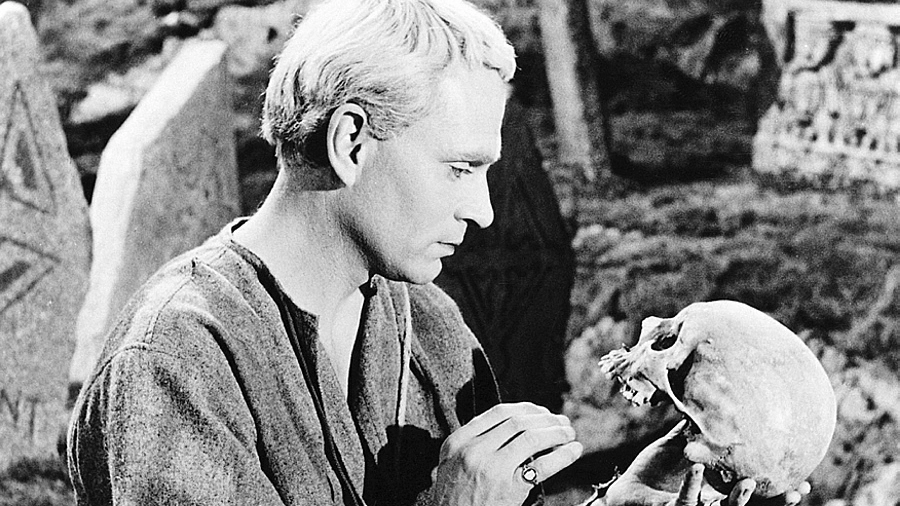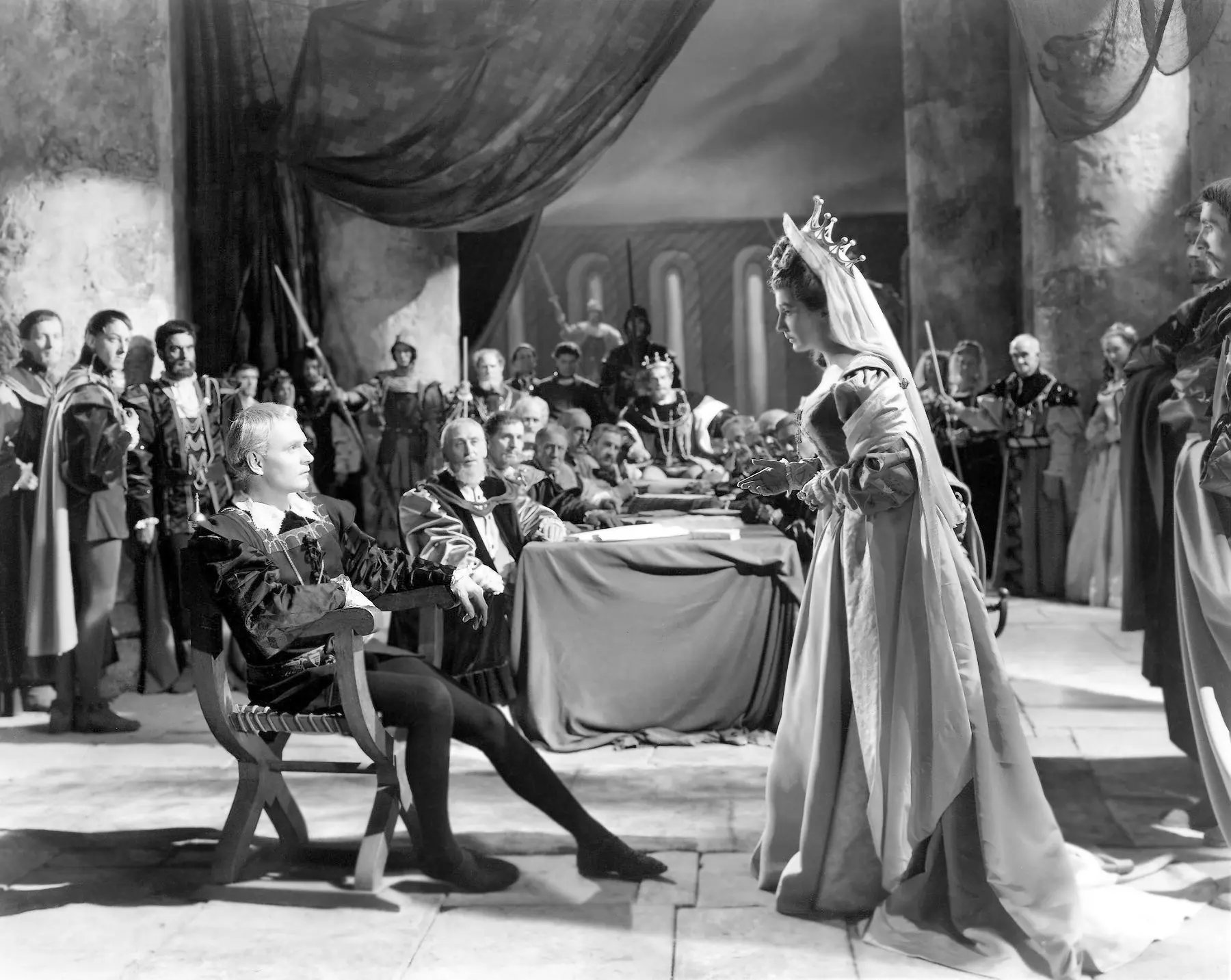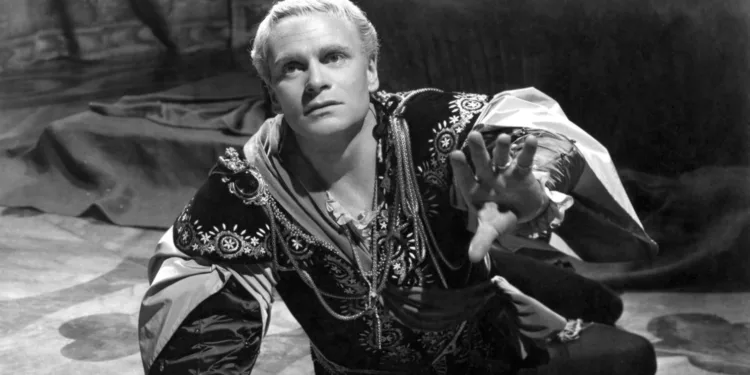Celebrating 75 years since the release of Sir Laurence Olivier’s film version of Shakespeare’s Hamlet, the first British film to win the Academy Award for Best Picture.
“Since Brevity is the soul of wit, I shall be brief.”
May 2023 sees the 75th anniversary of the Sir Laurence Olivier’s film adaptation of Hamlet, arguably William Shakespeare’s best-known play, which was directed by and starred the man famous for his psychologically intense versions of the Bard’s works.
Winning four Oscars, including Best Picture and Best Actor – for Olivier himself – the film is continually referenced to as a benchmark for Shakespeare-inspired productions for the big screen.
In fact, many critics have written over the last three-quarters of a century that the cinematic version of Hamlet can be viewed without even thinking that it was originally penned by Shakespeare at all, but more as an astonishing and standalone piece of art.

It’s rare that the viewer takes their eyes from the screen during the 153-minute masterpiece, as we are guided along the magical journey of ghost story, revenge plot, character study and action-packed melodrama.
In truth, it wasn’t just the masterful Olivier who ascended to acting impeccability for the movie. A tremendous supporting cast of Basil Sydney, Eileen Herlie, Norman Wooland, Felix Aylmer, Terrence Morgan, Jean Simmons, John Laurie, Esmond Knight and Anthony Quayle all sparkled.
The latter went on to spend several years as Artistic Director of the Shakespeare Memorial Theatre in the writer’s hometown of Stratford-Upon-Avon.
One famous contemporary of Olivier though wasn’t involved, as most thought. It was assumed that Sir John Gielgud was behind the eerie and unsettling ghost in the 1948 film – even though he did actually go on to do so in later stage, radio, TV and album versions. Yet it was Olivier all along.
One oddity that was proven as true however was that having been born in 1907, Olivier was 40 years old when the film came to pass, and the aforementioned Eileen Herlie who played his mum… was 11 years his junior!
Since Hamlet succeeded in becoming the first British film to win the Academy Award for Best Picture, over 50 versions have followed on screen. Of them all, five in particular are noted for their significance.

The 1964 Russian reimagining based on a Boris Pasternak translation and directed by Grigori Kozintsev is hugely influenced by the post-Stalinist era in which it was made, and features actors whose first language was anything other than Russian.
Stalin had imprisoned both Pasternak and lead actor Innokenty Smoktunovsky during World War II; and even though its depictions are in huge contrast to that of the 1948 film, English film critics have often ranked Smoktunovsky’s performance as being up there with Olivier’s.
The Tony Richardson-directed adaptation in 1969 was the first to be filmed in colour and was also based on Richardson’s own Roundhouse Theatre stage production, in London. However, it was a commercial failure.
When it was the turn of Franco Zeffirelli in 1990, he was no stranger to directing a Shakespeare film. Some 22 years earlier, he made Romeo and Juliet, with an uncredited Olivier narrating the film’s prologue and epilogue.
Zeffirelli’s Hamlet had Mel Gibson in the lead role, Gertrude played by Glenn Close, Helena Bonham Carter as Ophelia and Alan Bates starring as Claudius. With an average shot-length of just six seconds, and a large amount of dialogue removed, it has the uncomfortable feel of an action flick, but is unique at least.
Six years later, Kenneth Branagh appeared determined to add the text the Italian director left out, using every single word from the original play, contributing to a four-hour colossus. The director himself played the titular role, with Kate Winslet as Ophelia, Julie Christie is Gertrude and Derek Jacobi is Claudius.
It proves that Olivier’s original went a long way not just to making movie history, but in inspiring the generations of movie-makers who followed. William would be proud.










